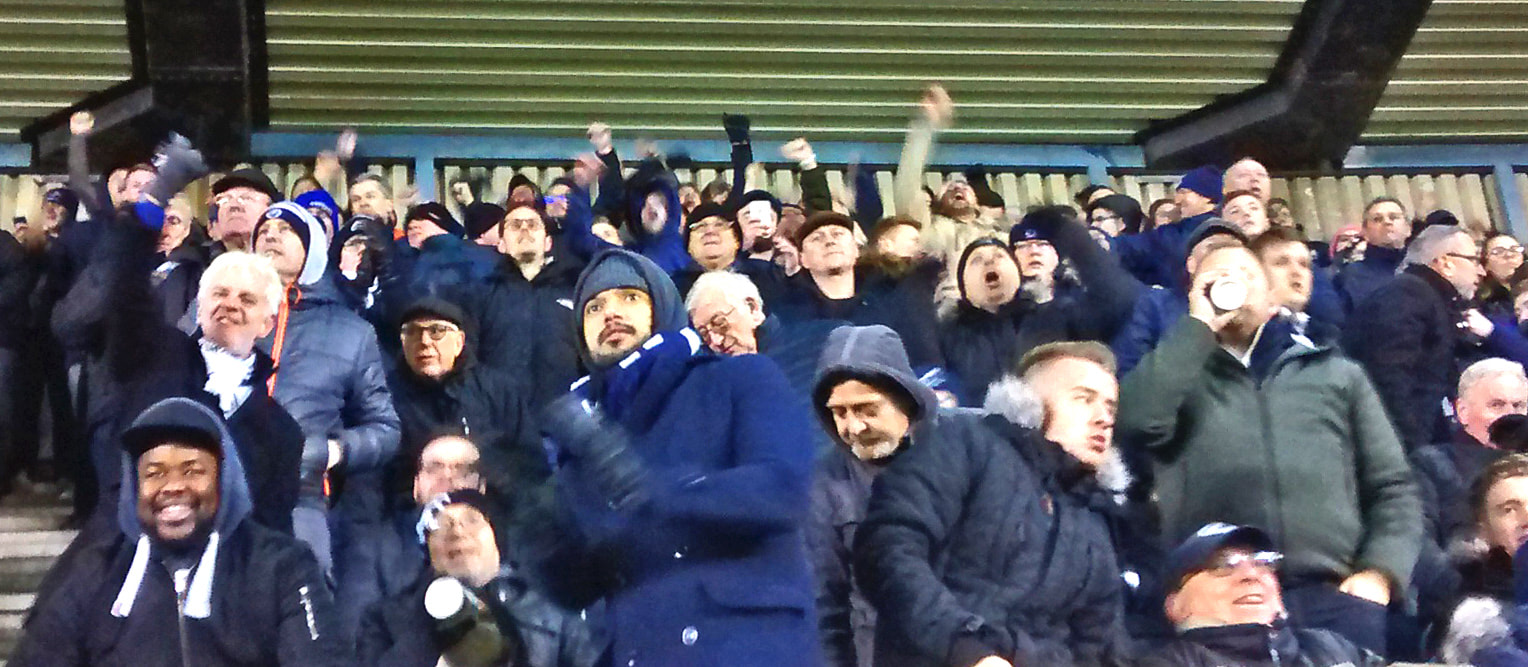|
|
|
While never entirely going away, the relationship between football fandom and racism has over the past few months come into renewed focus. In a UK context, this concerns the continued controversy over players choosing to ‘take the knee’ before professional matches in protest of racial injustice, as well as online abuse targeting the three black players who missed penalties in this summer’s final of the Euro 2020 tournament. Against a back story of overt racism in English stadia throughout the 1970s and 1980s, these episodes remind us of the need to keep interrogating the use of racist language across English football.
In this context Millwall FC holds a somewhat unique, although unwanted, position. It is a club that is widely recognised – for its association with racist hooliganism – even among those who know little about football. This reputation dates back to the 1970s. Therefore, the idea of the black Millwall fan – as a category and an identity – causes raised eyebrows, as it appears an oxymoron that goes against existing perceptions of what constitutes a Millwall fan. It is the oral histories of black Millwall fans and players that are at the core of the Millwall's Changing Communities Research Project, funded by the Lottery and led by the South London-based charity Bede House.
My Identities article, ‘Black Millwall: Memories of football and neighbourhood in South London’, explores the experience of black Millwall fans from two perspectives: One concerns the experiences of how football is, or has been, integrated within everyday life in this part of South London; the other relates to the cultural passport that provides entry into the community of Millwall fans. The core argument is that ‘doing’ football – as in playing, watching, talking about football – constitutes a social field that cuts across otherwise racially coded urban landscapes. Whereas most work on fan cultures explore social practices and rituals inside the stadium, the focus here is on how ‘doing football’ is interwoven with the wider socio-cultural fabric incorporating local neighbourhood spaces and stadia, connecting past and present and providing continued meaning to memories of ‘our area’.
When considering the role of doing football in the local context, it is useful to keep in mind the distinction between culture as respectively ‘tradition’, imposing emblems and rituals of the past, and a ‘bricoleur’s bag’ where shared meanings are created. The oral histories presented suggest that it is in the practices related to ‘doing football’, in local school yards and on estates, that inclusive cultural spaces would emerge, across race and ethnicity. Furthermore, the oral histories revealed a duree whereby social forms and shared meanings forged during the early years continue to hold significance in adulthood. When gravitating towards The Den, doing football would take on practices and rituals integral to being a Millwall supporter. Here, the black Millwall supporter would also experience racist chanting, and at times even take part in it, while being acutely aware that the chanting was a means to target and intimidate opposition players and supporters. As they saw it, they were accepted due to their position as Millwall supporters – or, as some of them phrased it: ‘It’s about the colour of the [Millwall] shirt, mate’.
Image credit: Author’s own.
Blog post by Ole Jensen, Open University, UK
Read the Identities article: Jensen, Ole. Black Millwall: Memories of football and neighbourhood in South London. Identities: Global Studies in Culture and Power. DOI: 10.1080/1070289X.2021.1970977
Explore other relevant Identities articles:
‘That black boy’s different class!’: a historical sociology of the black middle-classes, boundary-work and local football in the British East-Midlands c.1970−2010 Whose ‘wee country’?: identity politics and sport in Northern Ireland Pretty fly for a white guy: the politics of race, nation and difference in professional boxing [Open Access]
0 Comments
Your comment will be posted after it is approved.
Leave a Reply. |
|
Explore Identities at tandfonline.com/GIDE |
|
The views and opinions expressed on The Identities Blog are solely those of the original blog post authors, and not of the journal, Taylor & Francis Group or the University of Glasgow.


